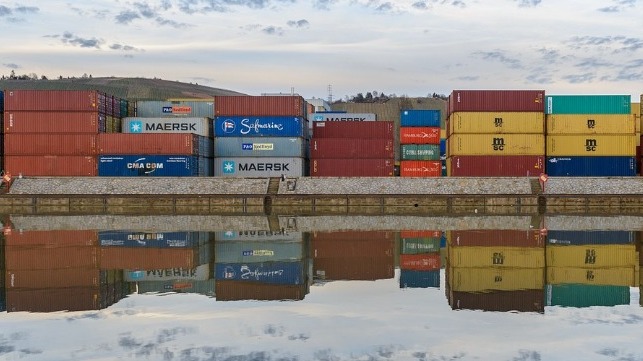Shippers Look for Better Security Solutions for the "New Normal"

Sponsored by 7PSolutions
“Containerized cargo is the single largest security vulnerability in maritime shipping. Recent consolidation in the maritime shipping industry, along with freefalling shipping rates and increased vessel sizes, combine to cause concern for the future of containerized shipping security. Maintaining security in the maritime shipping industry is critical. Programs including the Container Security Initiative and Customs-Trade Partnership Against Terrorism apply risk-based approaches. However, with fewer market players after industry consolidation, it is time for regulators to review the success of current programs and search for new initiatives." - Nick Monacelli, "Improving Maritime Transportation Security in Response to Industry Consolidation," Homeland Security Affairs Journal
The United States developed the Container Security Initiative (CSI) in response to risks and possible threats post September 11, 2001. The objective was to identify high risk containers, to install new screening steps before shipping and to use new and existing technology to allow commerce to move forward. In addition to CSI, after 9/11, the U.S. government added the Customs-Trade Partnership Against Terrorism (C-TPAT) and the International Maritime Organization (IMO) developed the International Ship and Port Facility Code (ISPS). As part of their continued efforts, the U.S. Customs and Border Patrol (CBP) uses the Automated Targeting System to combine intelligence and law enforcement data to drive both CSI and C-TPAT programs.
These government initiatives are all designed to manage risk and protect cargo, ports and borders. However, the current global COVID-19 health crisis has complicated matters, affected the supply chain and increased port congestion. Some retailers have struggled with operations and have been forced to leave cargo unattended at ports that are already operating below standards. On occasion, some ports have declared “force majeure” in anticipation of claims and legal liability. These delays have increased all risks associated with the supply chain – particularly for key products such as medicines and medical devices.
For these reasons, it is critical for shippers and cargo owners to implement robust security and risk management tools into their logistics chain. Shipment monitoring technology has advanced dramatically in recent years. Security devices are now able to provide coverage worldwide and communicate without human intervention. The range of devices includes traditional radio frequency identification (RFID), GPS satellite and cellular technology, which makes it easier to protect cargo in real time across the entire globe.
The key is how security service providers manage and collect data. Supply chain security firms have the tools and are able to turn information/data into actions that can impact the bottom line of cargo owners and provide a solid return on investment. In addition to security features, security companies are often able to provide environmental monitoring sensors that collect key quality control data.
“The ideal risk management platform typically includes several layers of protection that are often complemented by monitoring services provided through call centers and investigative efforts in collaboration with local law enforcement agencies," said Jeff Clark, CEO and Founder of 7PSolutions. “We are working every day to adjust to the new normal and provide shippers and cargo owners with products that track, protect and monitor their products from origin to destinations all over the world”.
“The size of the risk management platform can vary depending on the shipper’s footprint and size of operation. It is imperative to work with solution providers that have worldwide experience and can help cargo owners and logistic service providers customize their needs - based on their goals," explained John Tabor, President of 7PSolutions.
“After decades working and helping companies manage risk and security, we have partnered with 7PSolutions and are currently focused on Mexico and Latin America. Our company, Orbit Keeper, provides 7PSolutions with on the groud support in high risk countries that are affected by an increase in thefts," said Yolanda Bernal, President of Orbit Keeper and 7PSolutions Representative in Mexico City. "We are excited to be a part of 7P’s Global Alliance."
Security and risk management tools are mission-critical for shippers, and modern cargo monitoring technology is better than ever. To learn more about networked security monitoring services that produce actionable information, visit 7PSolutions online at www.7pgps.com.
The opinions expressed herein are the author's and not necessarily those of The Maritime Executive.
